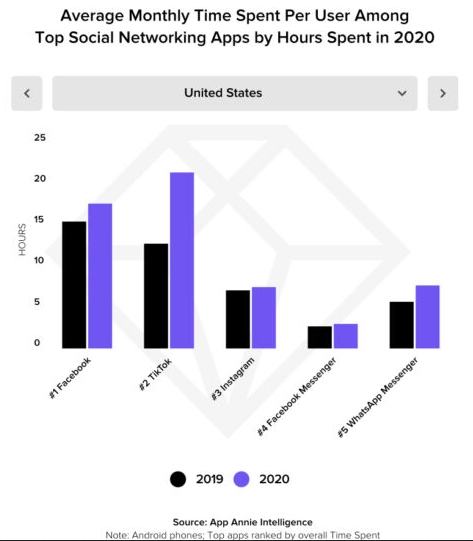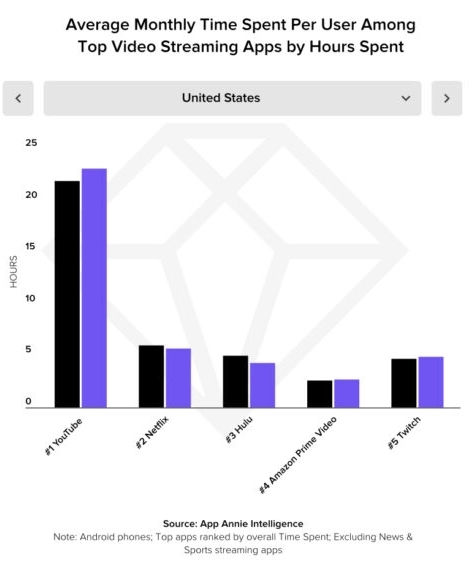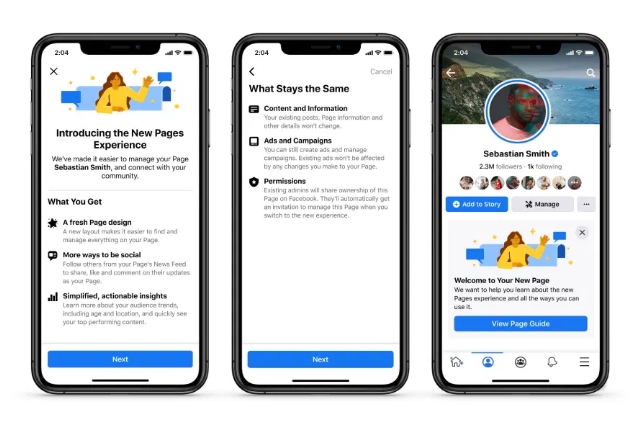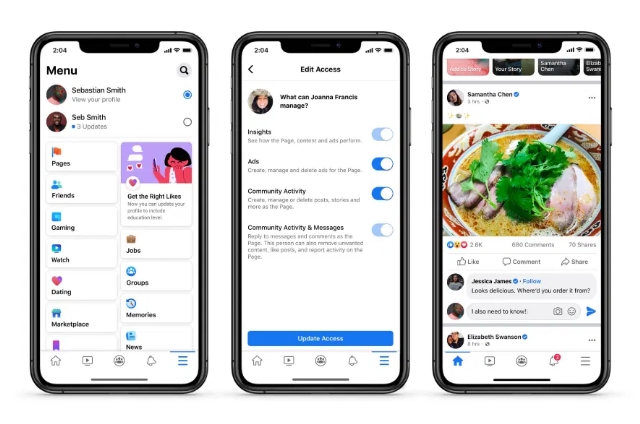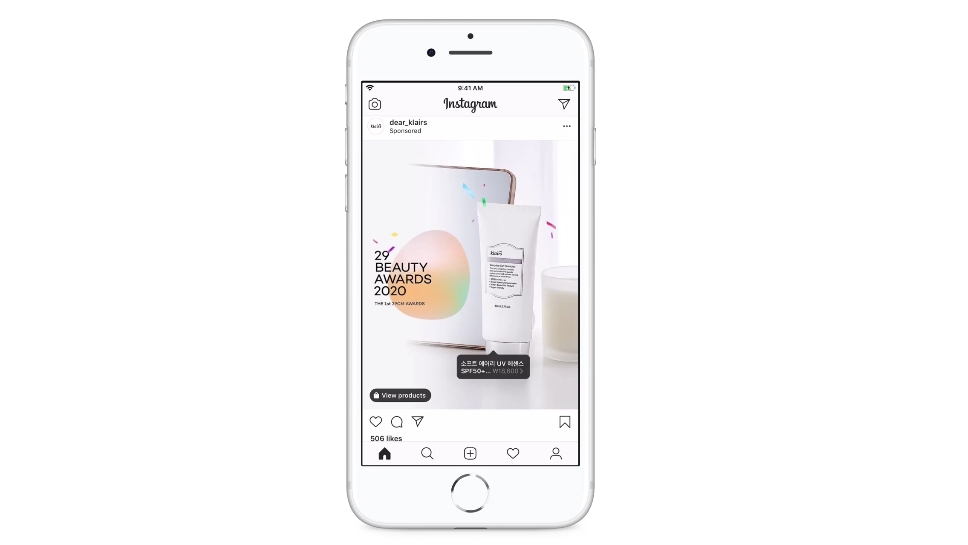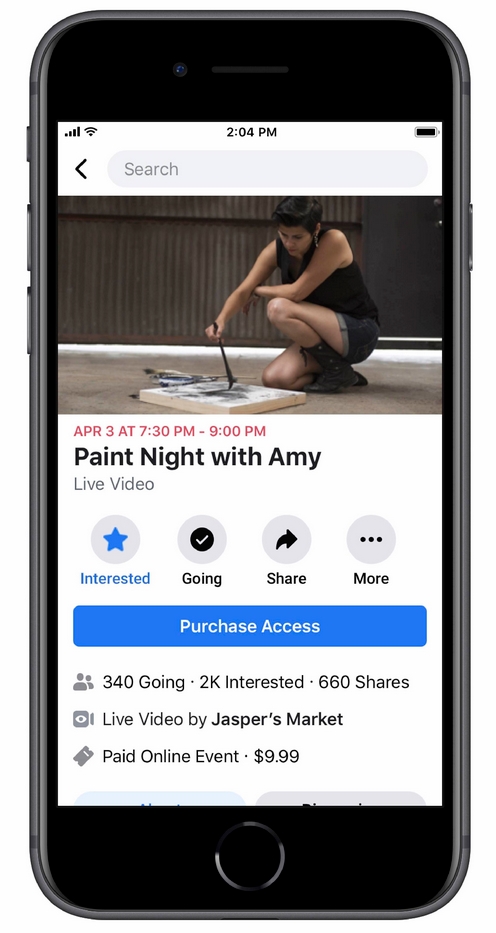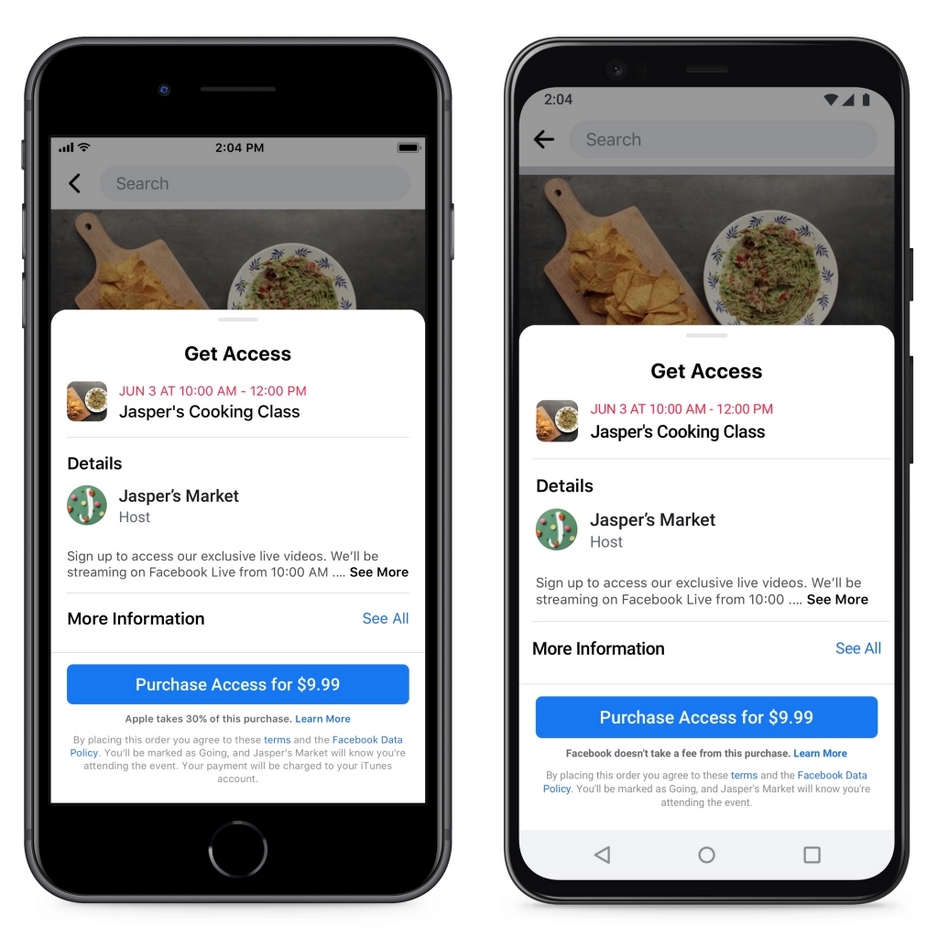Facebook is launching a wave of new tools and features for businesses including the ability to schedule stories, manage photo albums, and better manage post drafts.
While some of the new Facebook Business Suite features revealed in a recent blog post are available to businesses everywhere now, the company also gave a peek into a few updates coming soon.
Schedule Your Stories on Facebook and Instagram
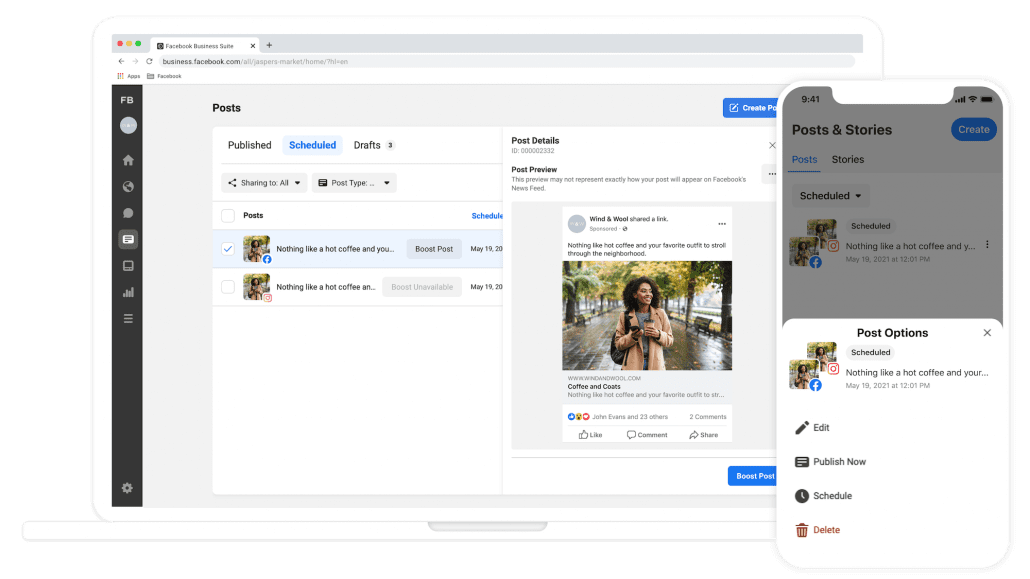
Facebook Business Suite already let brands schedule and manage traditional posts and content. Now, it is extending that functionality to Stories.
Using Business Suite, you can start creating, publishing, and scheduling stories for both Facebook and Instagram from mobile and desktop devices.
On desktop, simply click “Create Story” while using Business Suite. On the mobile app, you will find the feature by tapping the “Posts & Stories” tab.
Once you have opened the scheduling tool, follow these steps:
- Select which platform (Facebook, Instagram, or both) you want to publish to.
- Click Upload Media and select your photo or video.
- Add text and stickers or crop your story.
- Preview the content.
- Click “Publish Story” to immediately share your story or click the blue arrow to expand the menu and select “Schedule Story” to decide when your story should go live.
Edit Scheduled Posts
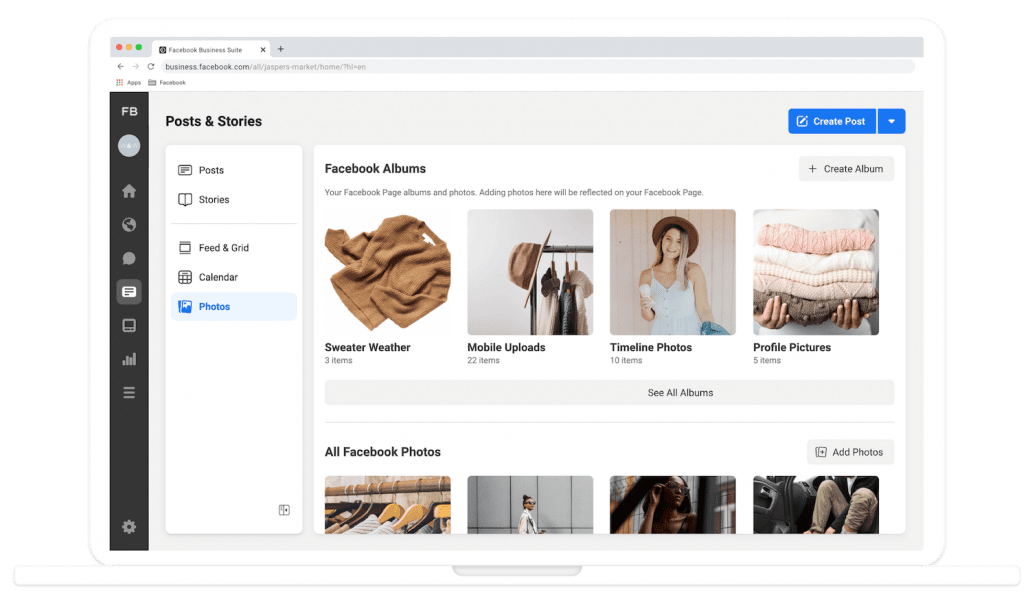
Along with scheduling your posts and stories, Business Suite now allows you to edit your scheduled content before it goes live.
To make revisions or edits, go to the “Scheduled Posts” section of the “Posts & Stories” tab and simply select “Edit Post” on the specific content you want to change.
Coming Soon: Create and Manage Albums
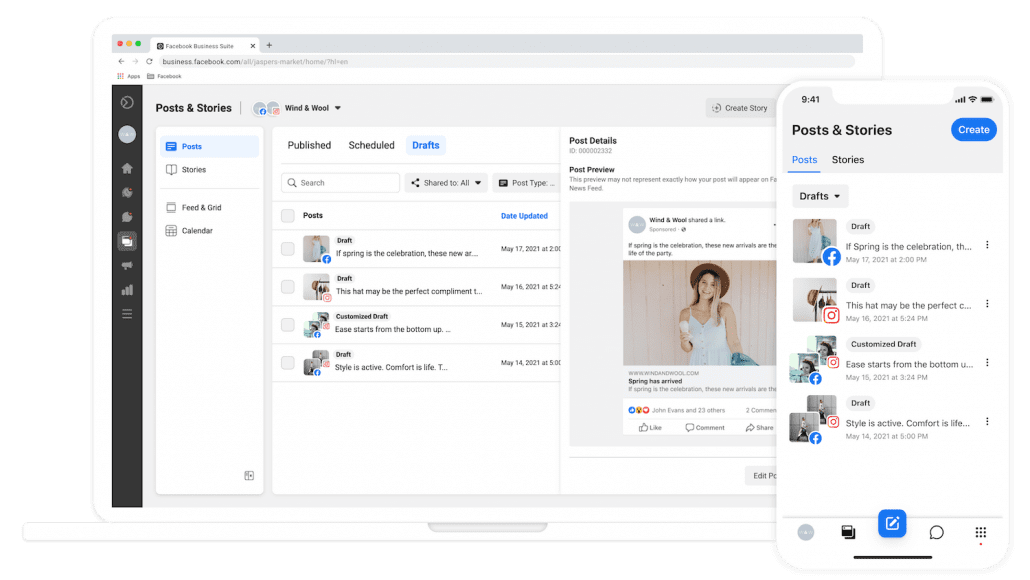
Soon, Business Suite will let brands create and manage photo albums within the “Posts & Stories” tab.
As the announcement says:
“Creating Albums is a useful and engaging way to showcase your business’ personality and share new products or services.”
Coming Soon: Save and Manage Content Drafts
The company teased that you will soon be able to create and edit drafts for drafts and stories and return to them later. However, it is unclear when this will roll out to the public.
With Facebook Analytics being shut down, Business Suite is becoming an essential tool for brands looking to manage their Facebook and Instagram presence in one place. Thankfully, it look like Facebook is similarly prioritizing making the platform as fully featured and versatile as possible before Analytics is gone for good.

